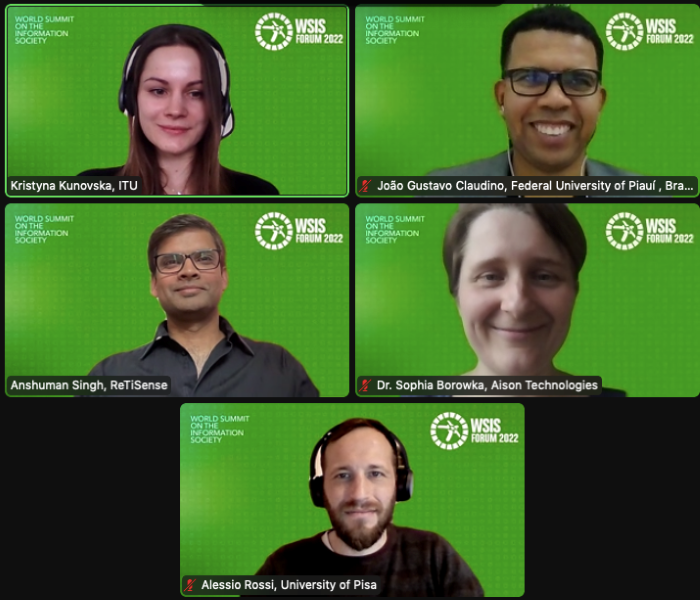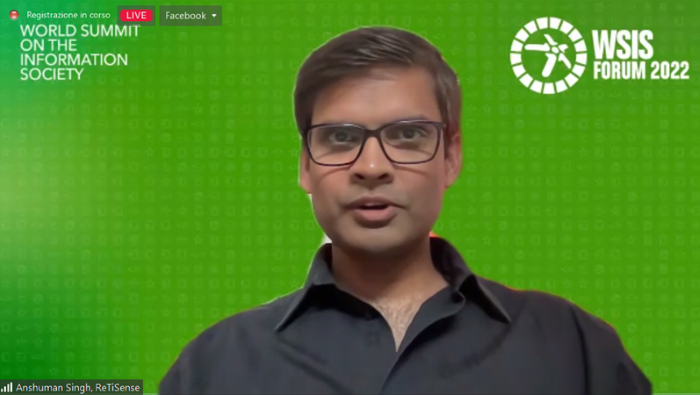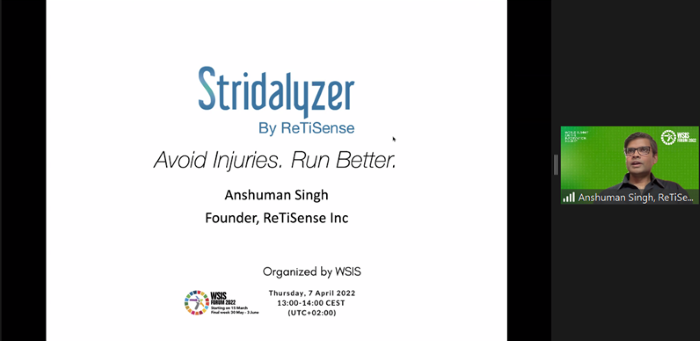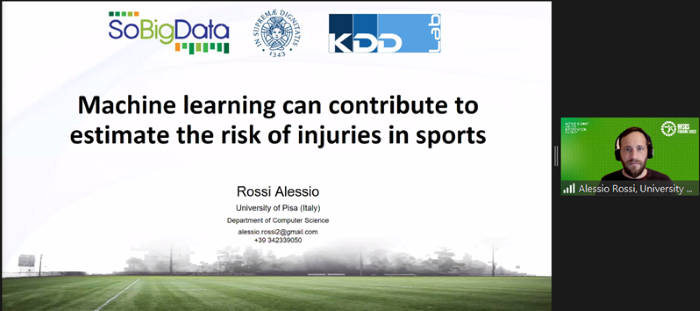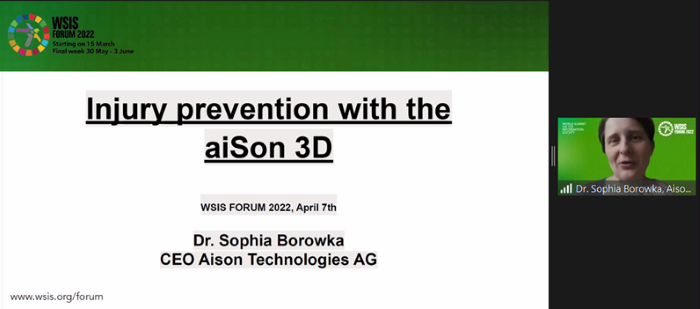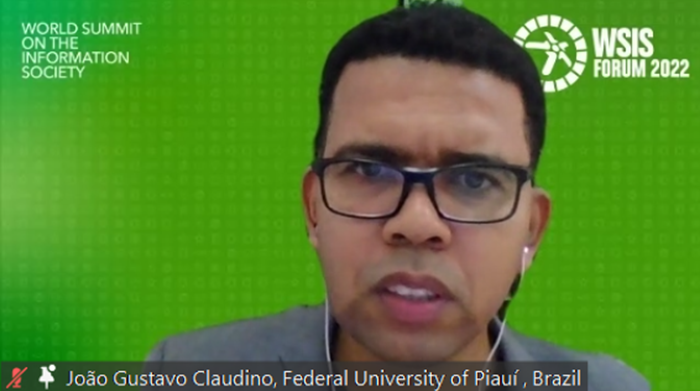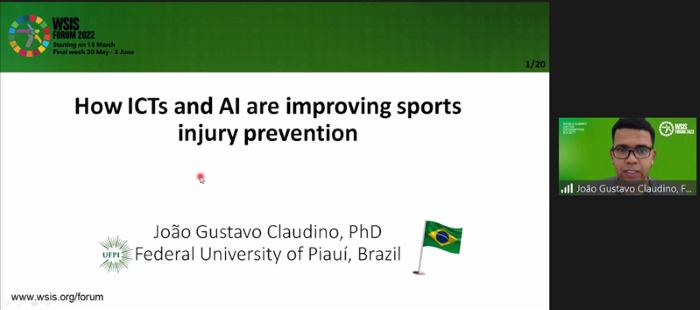How technologies are improving sports injury prevention
WSIS
Session 233
Sport plays an important role in physical and mental health. However, physical activities during sports are associated with a high risk of injury, which can be life-changing and limit the health benefits of the sport. Moreover, injuries of professional players are marked with a negative impact on team performance and considerable costs of rehabilitation for players.
With injuries being so common in any form of sports, injury risk reduction in sports has become a major challenge for all stakeholders around the people practicing sports. One way to improve the prevention of sports injuries and contribute to the health and safety of players/athletes is through the use of technologies. Technologies have drastically revolutionized the way injuries are prevented, be it for instance the use of information and communication technologies for educational purposes or utilizing artificial intelligence to analyze the potential relationships between factors and/or mechanisms leading to sports injuries.
This thematic workshop will focus on the ways in which technologies contribute to injury prevention in sports, as well as the challenges and opportunities of the use of technologies for sports injury prevention.
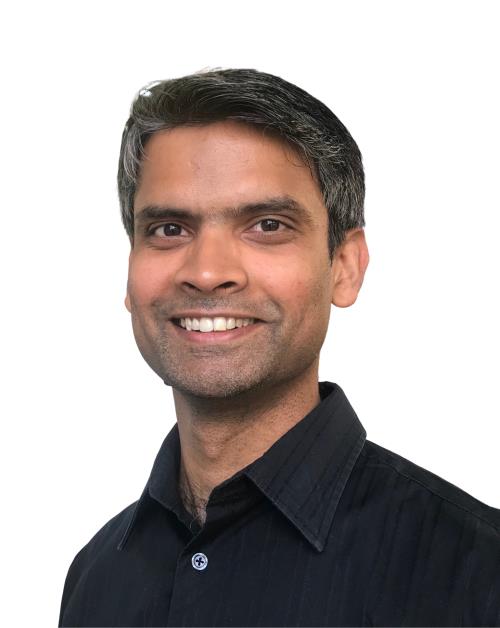
Anshuman Singh is the founder of ReTiSense. He started the company in 2015 with the goal of developing products and solutions that provide actionable guidance and deep insights into human biomechanics through innovative wearables, real-time analytics and long-term machine learning.
ReTiSense’s Stridalyzer line of products are built for trainers, physiotherapists and doctors as well as end consumers to help them understand static and dynamic gait at a deep level. Coupled with an intuitive app, the insoles help users improve their gait and avoid injuries. Stridalyzer biomechanics sensors and technologies are used by top universities and gait labs across the world to gain deep insight into human motion, injury prediction and prevention, and in the development of new methods to diagnose and treat biomechanics problems.
Anshuman Singh has over 20 years of experience working on Mobile & Embedded Systems, Data Analytics, Semiconductor Design, etc, and has held leadership positions in several startups as well as global leaders such as Intel. Anshuman holds a B. Tech (Electronics & Communications) from IIT Kharagpur (’99) and an MBA from Babson College, Boston, MA (2005). He is also a co-founder & trustee in the non-profit “Bal Mangal Educational Trust” - with the mission to improve quality of education in small towns and villages across India.

Alessio Rossi is a sports scientist with a PhD in “Biomedical Research”. In his PhD, Alessio focused his study on the research method, statistical analysis, and machine learning technique. He made his last year of PhD at the University of Pisa (Department of Computer Science) where he improved his skills in data science, big data analytics, machine learning approach, and informatics. He obtained the PhD with a thesis entitled “Predictive models in sport science: multi-dimensional analysis of football training and injury prediction.” Since 2018, he is a post-doc at the Department of Computer Science (University of Pisa) working as a Data Scientist mainly focused on sport and health analytics.
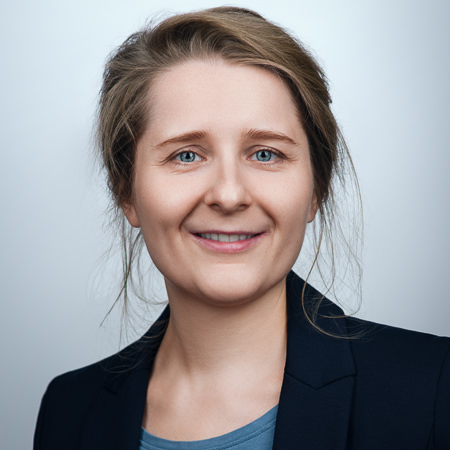
Impact-driven and not afraid of taking any risks. Sophia Borowka did her PhD in theoretical particle physics at the Max-Planck-Institute for Physics in Munich in Germany, followed by two research fellowships at University Zurich and CERN in Switzerland. At the crossroads of becoming a professor, Sophia decided to found Aison Technologies that would help solve the challenges of our society today. The company develops products that improve the image quality of medical ultrasound leading to an efficiency boost for the doctor and fewer misdiagnoses for the patient.
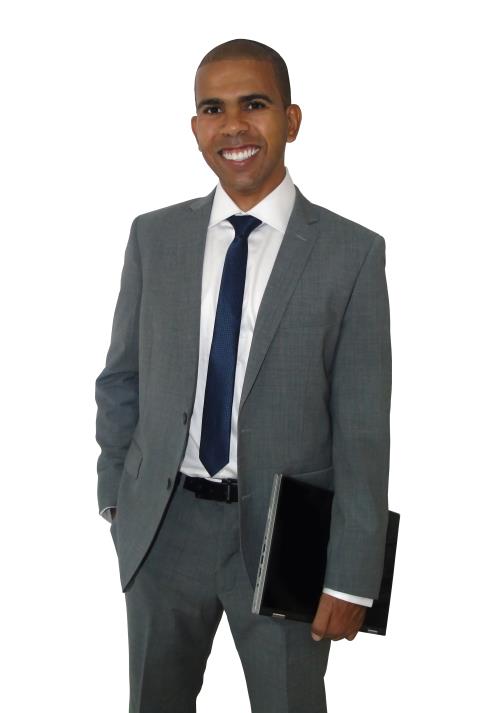
João Gustavo Claudino is a Sport Scientist with a PhD in Biodynamics of Human Movement at the University of São Paulo (USP) and Sandwich Doctoral Internship at the SPRINZ (AUT/New Zealand). Researcher at the Laboratory of Biomechanics (School of Physical Education and Sport - USP/Brazil) and Professor of the Department of Physical Education (Center for Health Sciences - Federal University of Piauí/Brazil). His research field is training load management. It is based on the monitoring, quantification, and regulation of training load supported by a 24/7 approach and Artificial Intelligence. Author and Reviewer of national and international peer-reviewed articles.
-
 C1. The role of governments and all stakeholders in the promotion of ICTs for development
C1. The role of governments and all stakeholders in the promotion of ICTs for development
-
 C3. Access to information and knowledge
C3. Access to information and knowledge
-
 C4. Capacity building
C4. Capacity building
-
 C5. Building confidence and security in use of ICTs
C5. Building confidence and security in use of ICTs
-
 C7. ICT applications: benefits in all aspects of life — E-health
C7. ICT applications: benefits in all aspects of life — E-health
-
 C7. ICT applications: benefits in all aspects of life — E-science
C7. ICT applications: benefits in all aspects of life — E-science
-
 C9. Media
C9. Media
-
 Goal 3: Ensure healthy lives and promote well-being for all
Goal 3: Ensure healthy lives and promote well-being for all
-
 Goal 4: Ensure inclusive and equitable quality education and promote lifelong learning opportunities for all
Goal 4: Ensure inclusive and equitable quality education and promote lifelong learning opportunities for all
